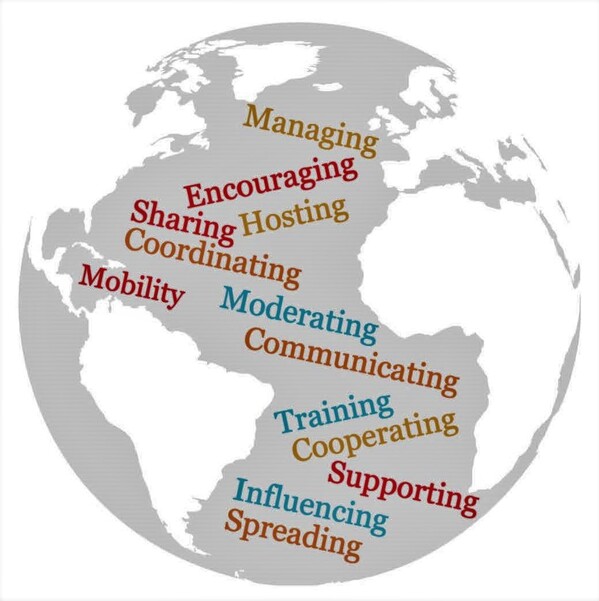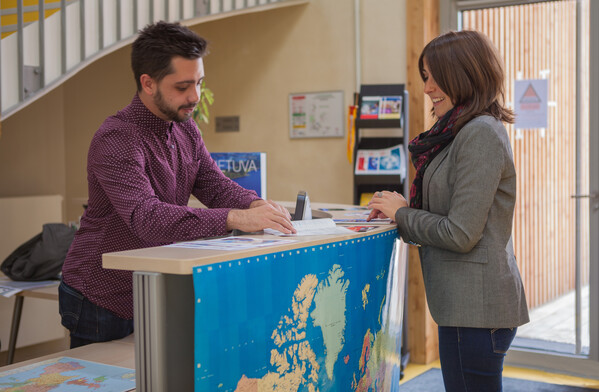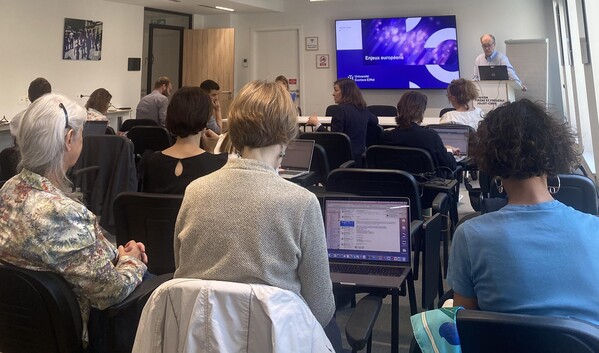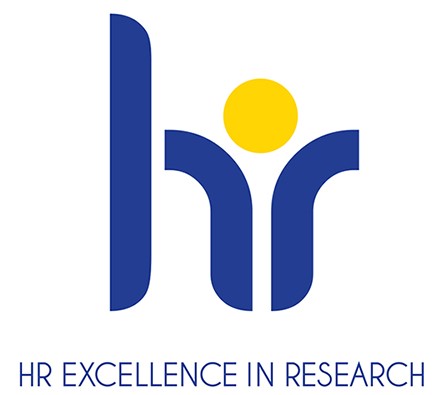European and international policy
European and international initiatives contribute to the influence and visibility of the university's academic project. Université Gustave Eiffel aims to to make cities and regions fairer and more equitable, safer and more resilient, more sober and frugal. Our research, training and networking strategy is based on a European and international approach, with universities and research organizations to train the coming generations throughout their lives.
Agnès JullienVice-présidente International de l’Université Gustave Eiffel

Europe and international strategy
Objectives of the university's Europe and international strategy
- Coordinate and participate in European projects, in particular by contributing to the transformation of the university : internationalize training, structure research, build links with territories thanks to specific areas of expertise and the campuses' socio-economic partners, intervene in support of public policies.
- Boost international visibility through specific activities: seminars and workshops to promote reciprocal knowledge between partners by geographical zone within the university's perimeter (Europe, North America-Oceania, South America, Asia-Middle East, North Africa, Sub-Saharan Africa).
- Develop a thematic framework by partner and "target" country (Europe, North America-Oceania, South America, Asia-Middle East, North Africa, Sub-Saharan Africa).
- Creating a dynamic based on hubs.
- Building a dynamic that links ecosystems in different European regions.
- Identify and target organizational, human and financial resources for international development.

Support mission
The International Vice-Presidency's support mission is dedicated to assisting researchers and teachers with their bilateral/multilateral research and training activities, as well as European and international networking. A specific Task-Force helps set up and manage European projects.
The main activities are :
- Bilateral training/multilateral cooperation with the set up of strategic partnerships
- ERASMUS+ programme: teaching and training missions
- Double-degree training, student exchange agreements
- Support in setting up European training projects (ERASMUS+)
- Support for internationalization of training courses and applications for Bachelor's, Master's and Doctoral scholarships (Campus France)
- Incoming and outgoing international mobility of students and teachers
The main activities are :
- Bilateral/multilateral research cooperation, setting up international framework agreements and international co-supervision of theses
- Incoming and outgoing international mobility for doctoral students, post-docs and researchers, as well as travel within Europe and internationally
- Hosting VIPs and international delegations
- Helping researchers set up and manage European research and innovation projects
- European networking and monitoring of the programme Horizon Europe themes

Student House - International Relations Department
The student house address: room C01, Cité Descartes campus |
- Welcoming international students and teachers, accompanying them during their stay
- Mobility management for incoming and outgoing students, teachers and administrative staff
- Coordination and support for the international training initiatives offered by the university colleges
- Setting up projects to finance international mobility and managing financial schemes for international mobility

Maison Irène et Frédéric Joliot-Curie - Brussels Office
Address: rue du Trône 100, 1050 BRUSSELS, BELGIUM |
- Université Gustave Eiffel has an office at the Maison Irène et Frédéric Joliot-Curie (MIFJC) in Brussels.
- This structure hosts a number of French research and training organizations, coordinates their activities with European institutions and networks.
- The Maison Irène et Frédéric Joliot-Curie offers an annual programme of events, provides space for European projects meetings and events (up to 70 places).
